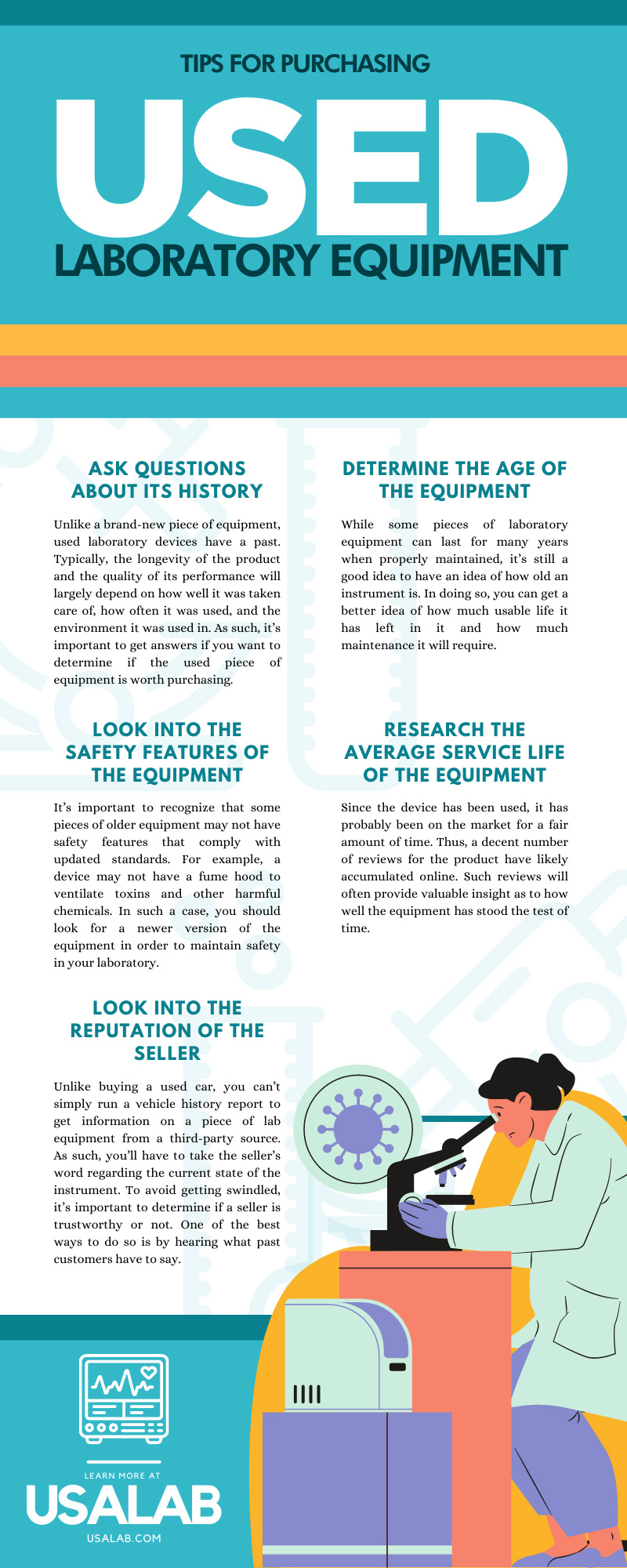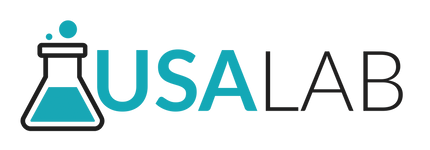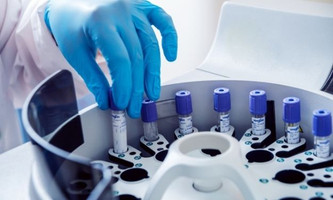Tips for Purchasing Used Laboratory Equipment
Apr 13th 2021
In order to run an efficient and successful lab, acquiring high-quality equipment is essential. Unfortunately, such equipment often comes with a substantial price tag. In fact, lab equipment is one of the highest upfront costs that new labs face. If your laboratory is looking to purchase equipment on a budget, buying used rather than new devices is one of the best ways to lower costs. That being said, because used equipment has a past, purchasing high quality pre-owned laboratory equipment that’ll still last a while requires a fair amount of foresight. Before making a purchase, consult this guide on our top tips for purchasing used laboratory equipment.
Ask Questions About Its History
One of the most important tips for purchasing used laboratory equipment is to ask about the history of the piece (or pieces) you’re interested in. Unlike a brand-new piece of equipment, used laboratory devices have a past. Typically, the longevity of the product and the quality of its performance will largely depend on how well it was taken care of, how often it was used, and the environment it was used in. As such, it’s important to get answers if you want to determine if the used piece of equipment is worth purchasing.
Before buying a laboratory device, ask if there are any known problems associated with it, and, if possible, ask to see its maintenance logs. The more information you can gather about the equipment’s history, the better you’ll be able to decide if it will be a good fit for your lab’s future.
Look Into the Reputation of the Seller
As indicated by our last point, you’re going to have to place some trust in the seller when purchasing laboratory equipment. Unlike buying a used car, you can’t simply run a vehicle history report to get information on a piece of lab equipment from a third-party source. As such, you’ll have to take the seller’s word regarding the current state of the instrument. Unfortunately, some duplicitous suppliers try to mislead unsuspecting buyers by saying that a piece of equipment is in better condition than it really is.
To avoid getting swindled, it’s important to determine if a seller is trustworthy or not. One of the best ways to do so is by hearing what past customers have to say. Check the seller’s customer reviews! Based on the past experiences that customers have had in terms of the quality of their products, customer service, and other pertinent factors, you can determine if a seller is worth your trust and money. If an equipment seller doesn’t have any customer reviews or ratings, it might be wise to take that as a red flag and make your purchase elsewhere.
Determine the Age of the Equipment
When purchasing used laboratory equipment, you’ll also want to figure out the age of the device you have your eye on. While some pieces of laboratory equipment can last for many years when properly maintained, it’s still a good idea to have an idea of how old an instrument is. In doing so, you can get a better idea of how much usable life it has left in it and how much maintenance it will require.
Research the Average Service Life of the Equipment
Before making a purchase, take some time to research the average service life of the equipment. Since the device has been used, it has probably been on the market for a fair amount of time. Thus, a decent number of reviews for the product have likely accumulated online. Such reviews will often provide valuable insight as to how well the equipment has stood the test of time. If the equipment has a long life expectancy well beyond its current age, purchasing used is an advantageous move. However, if the device has a short life expectancy or is near the end of its predicted usable lifespan, you should probably avoid purchasing it.
Look Into the Safety Features of the Equipment
In many cases, new editions of laboratory equipment differ only slightly from older models. Thus, it’s often easy to find a piece of used equipment with all the necessary features and capabilities you want. That being said, you may come across some objectively outdated pieces of used laboratory equipment during your search. While you may be willing to sacrifice a few desirable modern capabilities for a lower price tag, one aspect of the equipment you should never forfeit is safety.
It’s important to recognize that some pieces of older equipment may not have safety features that comply with updated standards. For example, a device may not have a fume hood to ventilate toxins and other harmful chemicals. In such a case, you should look for a newer version of the equipment in order to maintain safety in your laboratory.
Consider the Cost of Ownership
Before purchasing a piece of laboratory equipment, don’t forget to consider its total cost of ownership. While some pieces of used laboratory equipment have extremely low up-front costs, they could end up costing you more money over time. For example, an older model of equipment may not have as efficient processes as a newer one or it may consume more energy and resources.
In addition, an older piece of equipment nearing the end of its lifespan may require more frequent repairs and recalibrations which can increase the price and result in costly downtime. To ensure you’re making the most cost-effective decision possible, it’s important to consider not just the equipment’s price tag but also any additional costs that could add up over its lifespan.
USA Lab Equipment is a leading provider of exceptional quality new and used laboratory equipment, ranging from general supplies such as glassware and hotplates to more specialized devices such as extraction equipment. Our extensive inventory includes top-of-the-line products at competitive prices. In addition to producing our own high-performance equipment in-house, we also distribute used equipment from trusted third-party brands. For an unmatched laboratory equipment purchasing experience, shop our sizable online inventory today.


